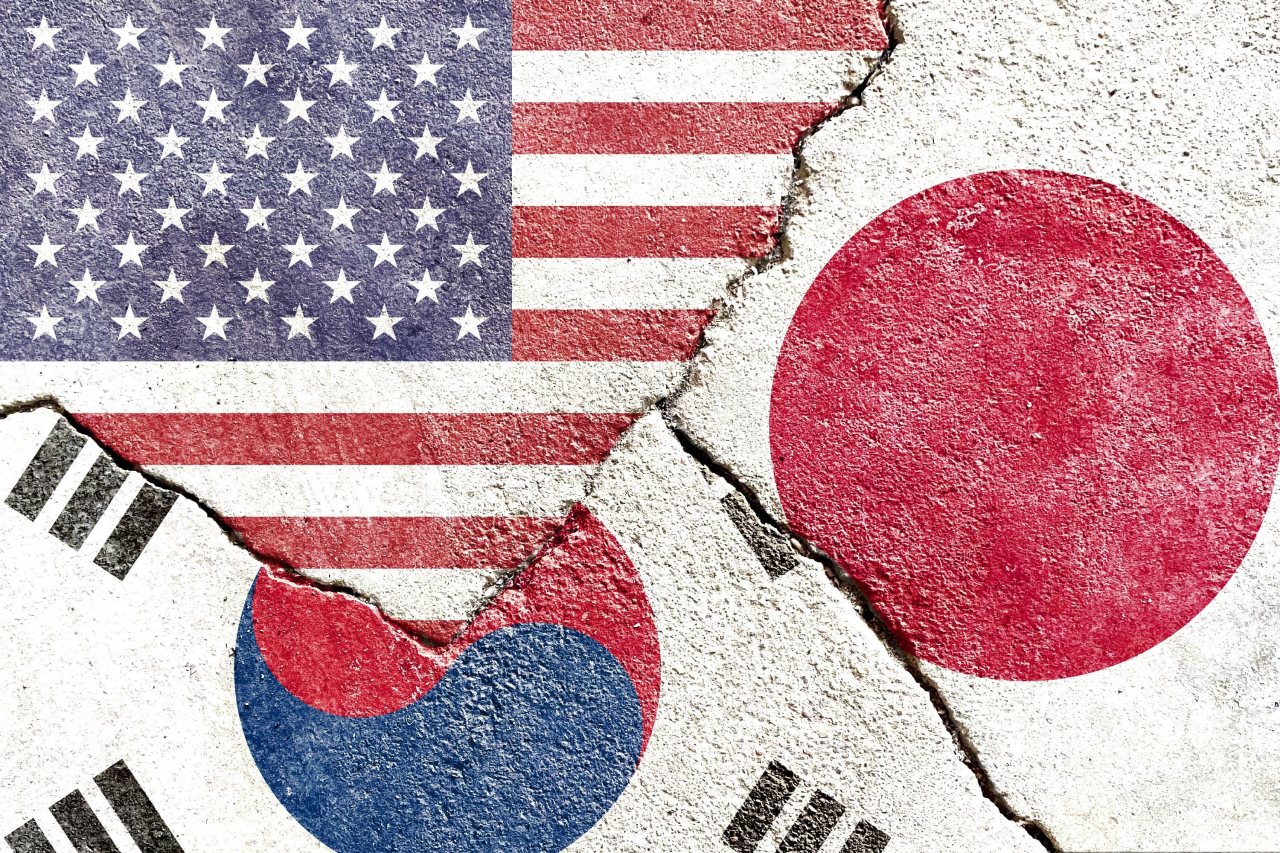 |
Clockwise from top left: The US, Japanese and South Korean flags. (123rf) |
The summit US President Joe Biden is hosting on Aug. 18 for South Korea and Japan at Camp David in Maryland, the first of its kind, is evidence that Biden considers the alliance special, South Korea’s ambassador to the US said Monday.
The trilateral meeting, meant to curb China’s influence and North Korea’s aggression while boosting economic ties, is the first Camp David summit Biden will hold since taking office in January 2021.
“We took the initiative in making this work,” Ambassador Cho Hyun-dong told reporters. Speculation is high over whether the summit could take place regularly, a decision that the three leaders would have to make on their own, according to officials familiar with the matter.
A senior official at President Yoon Suk Yeol’s office said, “Details are still being discussed.”
“The momentum for a completely new kind of three-way cooperation is borne out of an improvement in ties between South Korea and Japan,” Cho noted. The US-led coalition, working on dismantling North Korea’s nuclear arsenal, is stepping up efforts for disarmament as Pyongyang doubles down on missile tests.
The envoy was referring to a Seoul-Tokyo thaw in May, when the two leaders decided to put behind historical disputes involving Japan’s colonial occupation, and resume regular visits to each other’s countries after a 12-year hiatus.
Since last year, South Korea has been seeking closer ties with Japan, a neighbor that shares such “common interests” with Seoul in fighting off nuclear threats from North Korea, according to the Yoon administration, which took over in May of that year. Pyongyang since then has shown no signs of returning to nuclear talks.
Cho, who served as the first vice foreign minister before the ambassadorship, said the first meeting of a new Seoul-Washington group last month on managing US nuclear assets to deter the North’s aggression “drastically reinforced” the current deterrence plans, which chiefly rely on the US nuclear umbrella.
The Nuclear Consultative Group, which solidifies the US commitment to provide deterrence with nuclear weapons against North Korea, is one of the “very key outcomes” of the April summit between Yoon and Biden, according to Cho, who described the NCG as concrete progress in the allies’ pursuit of a nuclear-free North Korea.
“The overwhelming defense readiness of the allies will only be tighter as the North’s nuclear threats get bigger,” Cho said, adding that Seoul and Washington are closely monitoring developments in North Korea.
North Korean leader Kim Jong-un last week met with the Russian defense minister in Pyongyang, as part of events held to mark what the North calls its victory against the US-led United Nations forces in the 1950-53 war. It was the first time for Kim to hold high-level talks since the COVID-19 pandemic broke out in early 2020. China also sent a delegation.
“There are growing concerns over potential military cooperation between Russia and North Korea,” Cho said, stressing any weapons exchanges with North Korea would be a violation of the UN Security Council Resolutions that ban them. Pyongyang is also banned from using ballistic missile technology, which is also used in launching satellites.
Last week, US National Security Council spokesperson John Kirby said that the US and its allies currently see little room for diplomacy on North Korea’s disarmament, noting the US-led coalition is seeking to advance military capabilities.







![[Today’s K-pop] Blackpink’s Jennie, Lisa invited to Coachella as solo acts](http://res.heraldm.com/phpwas/restmb_idxmake.php?idx=644&simg=/content/image/2024/11/21/20241121050099_0.jpg)